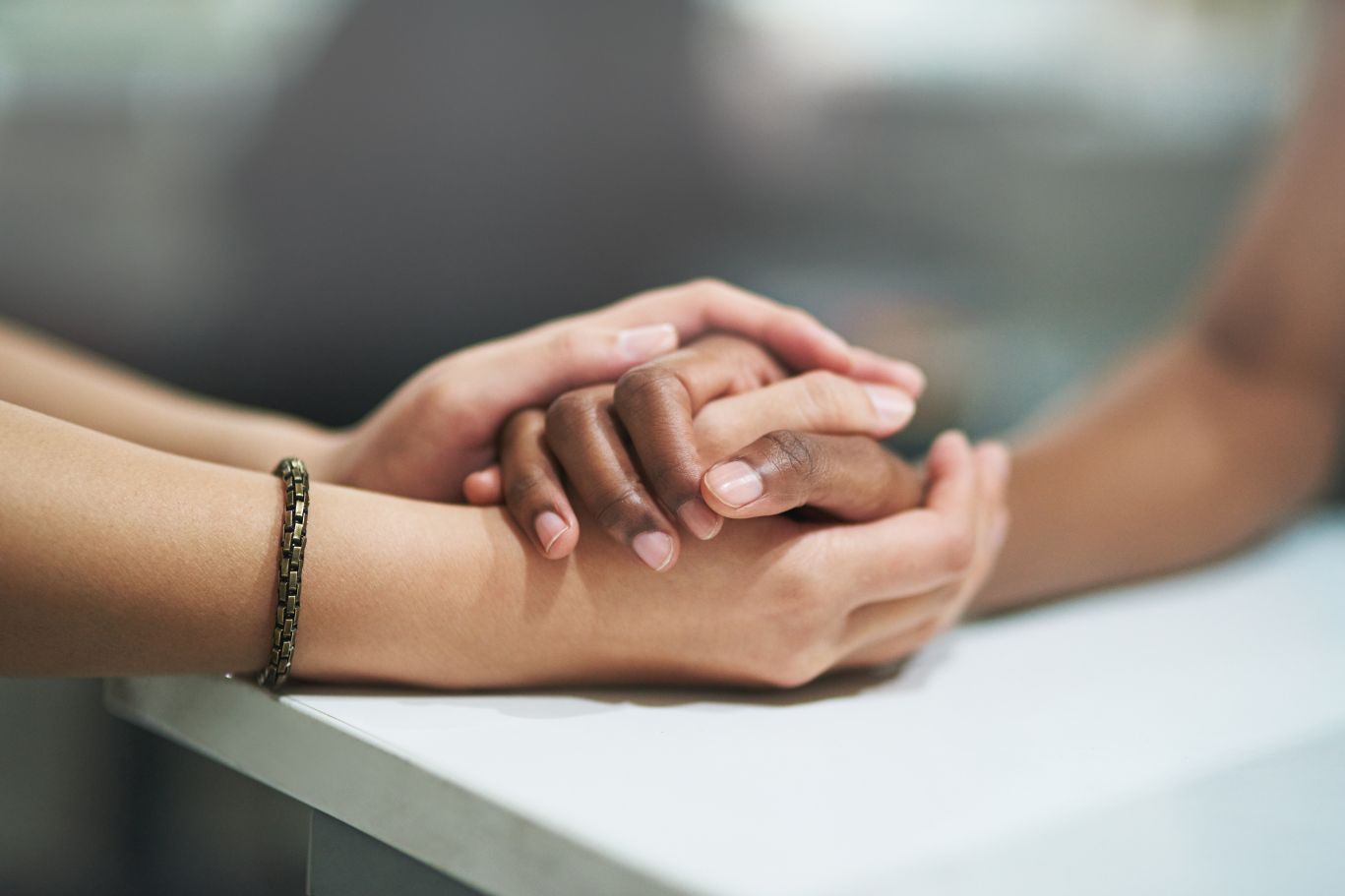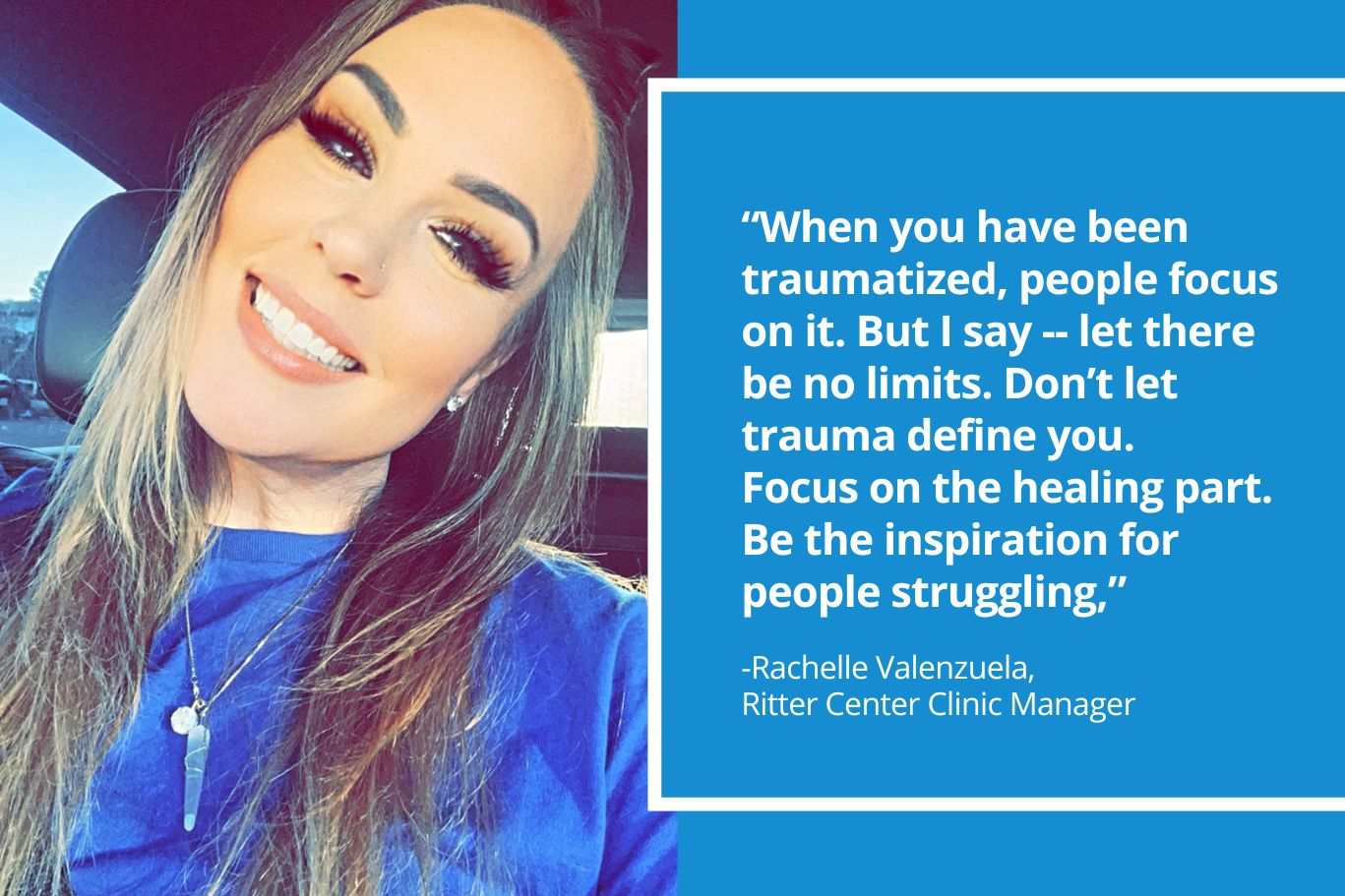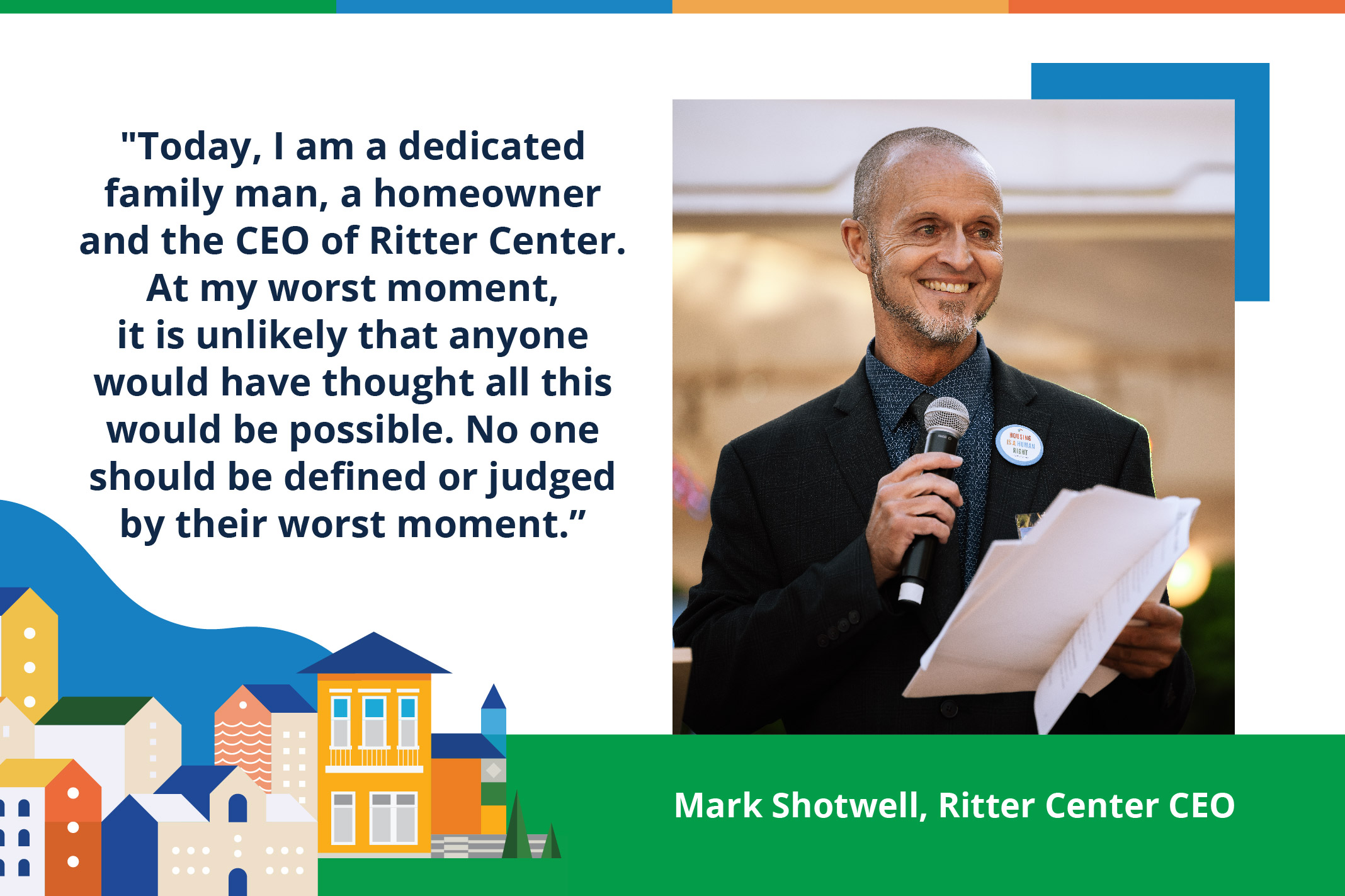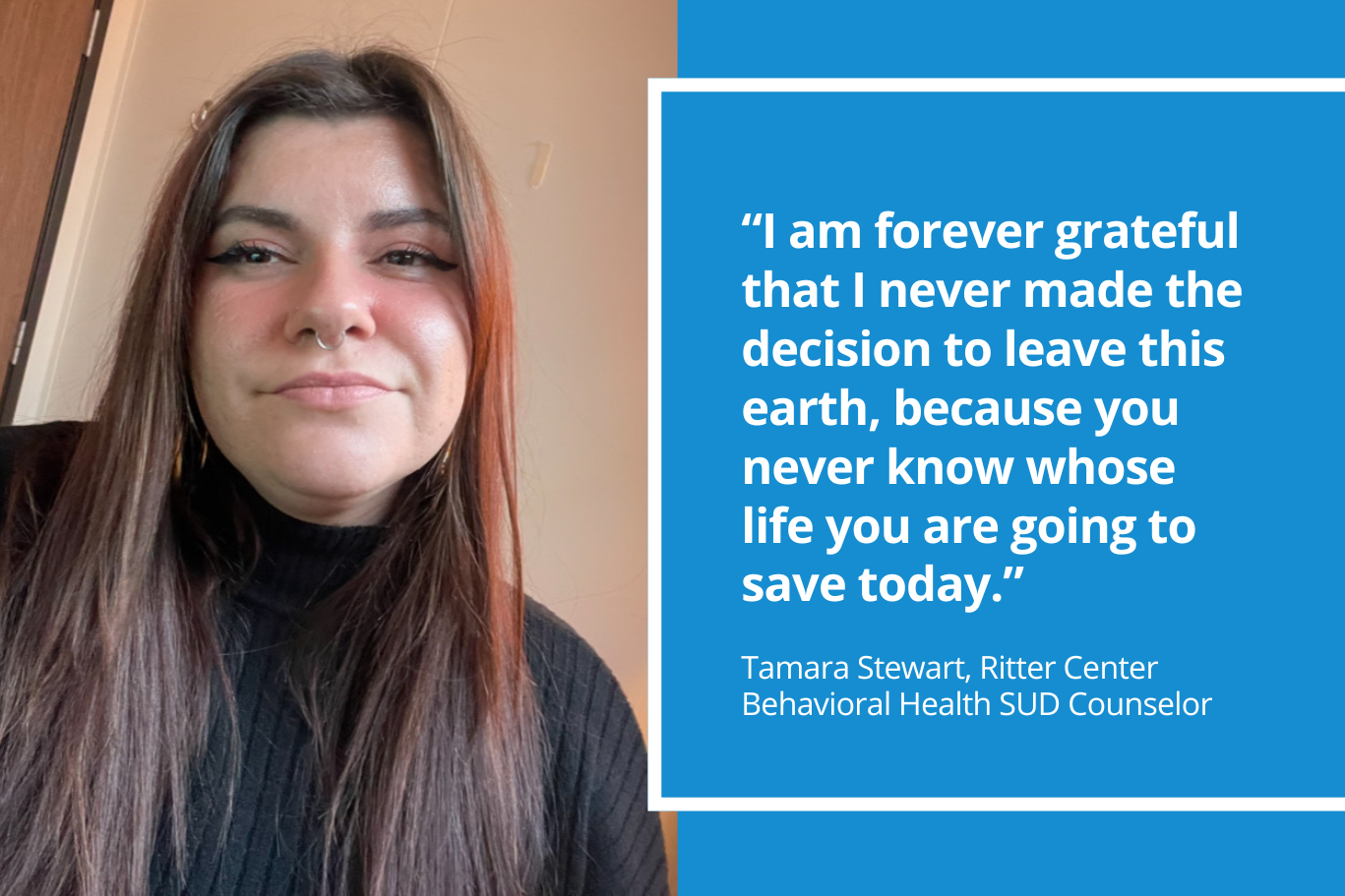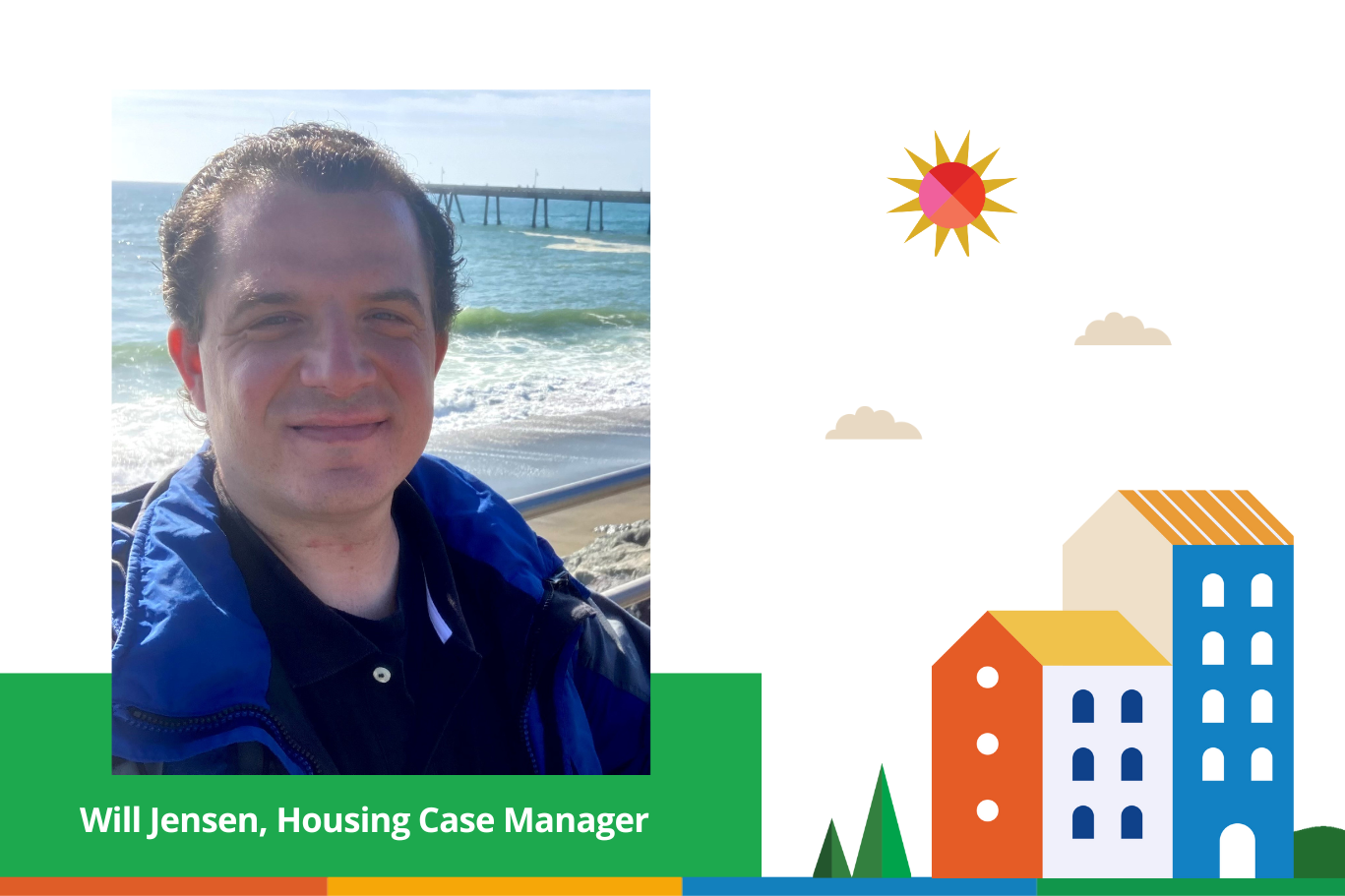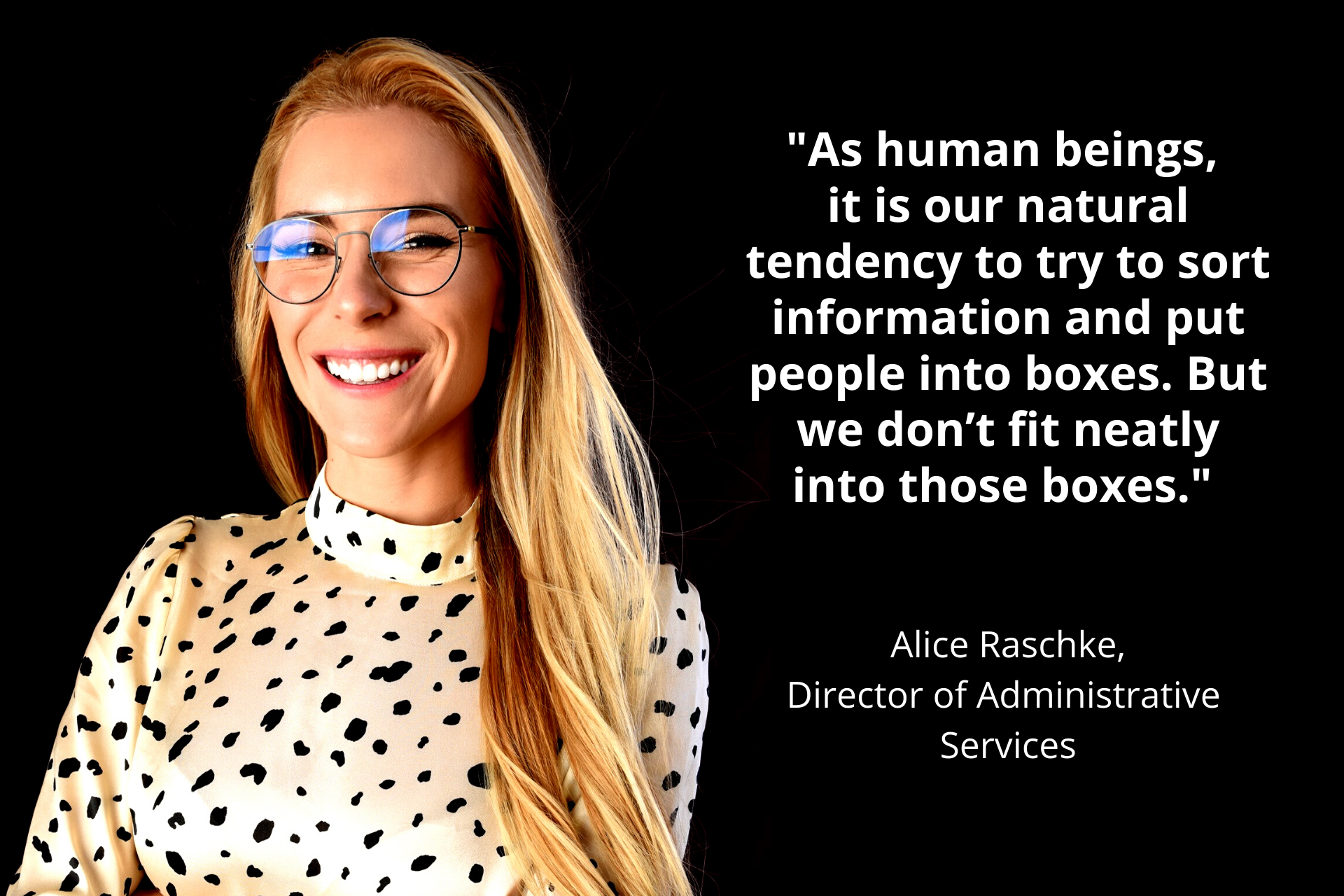
Alice Raschke shatters multiple stereotypes simultaneously.
A first-generation college graduate, Alice identifies as a member of the queer community and as neurodivergent.
She is Ritter Center’s Director of Administration and Technology and the right hand of our Executive Director Mark Shotwell. Born and raised in the Bay Area, Alice comes from a large family that has been a part of California for many generations.
Originally, Alice thought she wanted to go into astrophysics for her career but eventually switched her major to sociology. This was prescient as she has been an integral part of the Ritter Center staff for almost 5 years. She fell in love with both the work and the people in the community, clients and colleagues alike.
“I am proud to be a part of seeing Ritter Center grow, change and evolve as we significantly expand our services and scope of work. I love to see the direct impact first hand on those we serve here in Marin,” said Alice.
June marks Pride Month and Alice notes that Ritter Center is a welcoming community in which to be your authentic self.
“I am out to everyone I work with and this may be easier because I work at a social services agency. It seems that folks from the LGBTQ+ are often drawn to social work. I think this may stem from feeling marginalized or experiencing what young folks who are coming out go through in our society. We can bring that to what we give back when we lend our lived experiences from the queer community as well as communities of color and marginalized communities. Bringing that personal empathy and lens to our work is key.”
Alice shared that there is an overlap between what the community is facing currently from COVID that is analogous to the AIDS epidemic with one key difference: this time around society has been touched in a way that every person has a direct connection to loss and grief.
“My hope is that this common shared experience of what we’ve been through as a community may create a crack that we fill with empathy and solidarity. I recognize that there is a commonality of individuals not knowing whom to trust and inability to access information; yet at the same time, we can underscore the integral value of human life as precious and valuable,” recalls Alice.
The AIDS epidemic and the pandemic hold another thread in common.
“When we celebrate this month as the pandemic recedes, there is a palpable level of energy and joy as we dance in the streets of the Castro neighborhood. While we want to honor our tremendous resiliency, we must also pause to remember the Stonewall riots. Let’s remember those who lost their lives or had negative experiences fighting for the rights of others. Although it is good to see the corporate world recognizing Pride Month, we have to dig deeper to go beyond and truly ask how do we ignite social change? Can you speak up when someone says something homophobic and not be a silent witness? What little actions can you take or even big ones to do the work and be an ally? What is your intent? Your action? Your follow-up?,” urges Alice.
“I prefer the word queer because the adjective denotes a weirdness that feels appropriate to me. I am a proud nerd. I know that society likes to lean on stereotypes that are often incorrect for all of these identities that make up who I am: first generation college graduate; queer; and neurodivergent. As human beings, it is our natural tendency to try to sort information and put people into boxes. But we don’t fit neatly into those boxes. This is what resonates for me about working at Ritter Center. It naturally ties back to advocacy for those experiencing homelessness. We can humanize this critical topic. When someone says ‘you don’t look queer or homeless’ it shows the misinformation stereotypes can contribute to in our world. A person experiencing homelessness may have gone to Harvard or worked in Silicon Valley,” notes Alice.
“Everyone working at Ritter Center could probably make much more money in a different sector, like tech, but that’s not why we are here. We work at Ritter Center for the quality of life. Our satisfaction comes from the work we do. This type of work attracts amazing people. Together, we bring our experiences and passions to the work that we do in order to make an impact in the community. Many people spend their whole careers looking for that, and I am fortunate to have found that immediately with coming to work at Ritter Center,” describes Alice.
There are many ways to celebrate Pride Month.
“The first step is education, such as speaking with friends and family members and learning about history. The entire Bay Area is rich with history. I encourage everyone to ask open questions, adopt pronouns and learn about the difference between sexual orientation versus identity. You can help others around you to feel safe when you take a thoughtful approach. It can be through donating time or money. There are so many ways to give back,” shares Alice.
Here are a few tips to get you started:
- Ask educated questions and do your own research. Be a listener who is open-minded. Be willing to ask questions and talk. Learn and use correct and inclusive language.
- Encourage diversity in your work and personal life. Actively make room for LGBTQ+ people to exist.
- Don’t assume that all your friends and co-workers are straight. Someone close to you could be looking for support in their process of coming out. Not making assumptions will give them the space they need to do so.
- Recognize your privilege and use it to speak up for the underrepresented! Anti-LGBTQ+ comments and jokes are harmful. Let your friends, family and co-workers know that you find them offensive.
- Confront your own prejudices and bias, even if it is uncomfortable to do so.
- Defend your LGBTQ+ friends against discrimination by learning about anti-LGBTQ+ legislation in the legal system and vote to support equality!
- Do more than just show up for Pride. The belief should exist all year that all people, regardless of gender identity and sexual orientation, should be treated with dignity and respect.
More resources for consideration when donating funds or volunteer services:
Center for Black Equity
- The need for recognition and acceptance of our Black LGBTQ+ members is crucial now more than ever before in history. The Center for Black Equity is the leading center of Black LGBTQ+ equality. https://centerforblackequity.org/
Outright Action International
- LGBTQ+ protections are barely enacted in only 29 countries including the U.S. The rest of the world has little to no protections for its LGBTQ+ citizens and that’s where OutRight Action International comes in. It’s the only LGBTQ+ organization that has a presence in the United Nations, where it fights for rights of LGBTQ+ members around the world. https://outrightinternational.org/
Trans Lifeline
- Trans people are more likely to be attacked, mentally abused, and killed. 2019 saw more than 27 trans deaths, with the majority of those deaths being trans women of color. The first-ever crisis hotline for trans people was established in 2014. https://translifeline.org/
Ali Forney Center
- The Ali Forney Center is the biggest LGBTQ+ youth homeless shelter in the U.S. It assists nearly 1,400 youths per year through a 24-hour drop-in center, which provides over 70,000 meals annually, medical and mental health services through an on-site clinic, and a housing program. https://www.aliforneycenter.org/
The Okra Project
- The Okra Project cooks are Black and trans, and they prepare and deliver food for homeless Black trans people in places where it’s needed. Not only does this provide a service to areas that truly require assistance, but it also provides Black trans cooks with employment, as Black trans workers are less likely to be hired for jobs as a result of discrimination. https://www.theokraproject.com/
